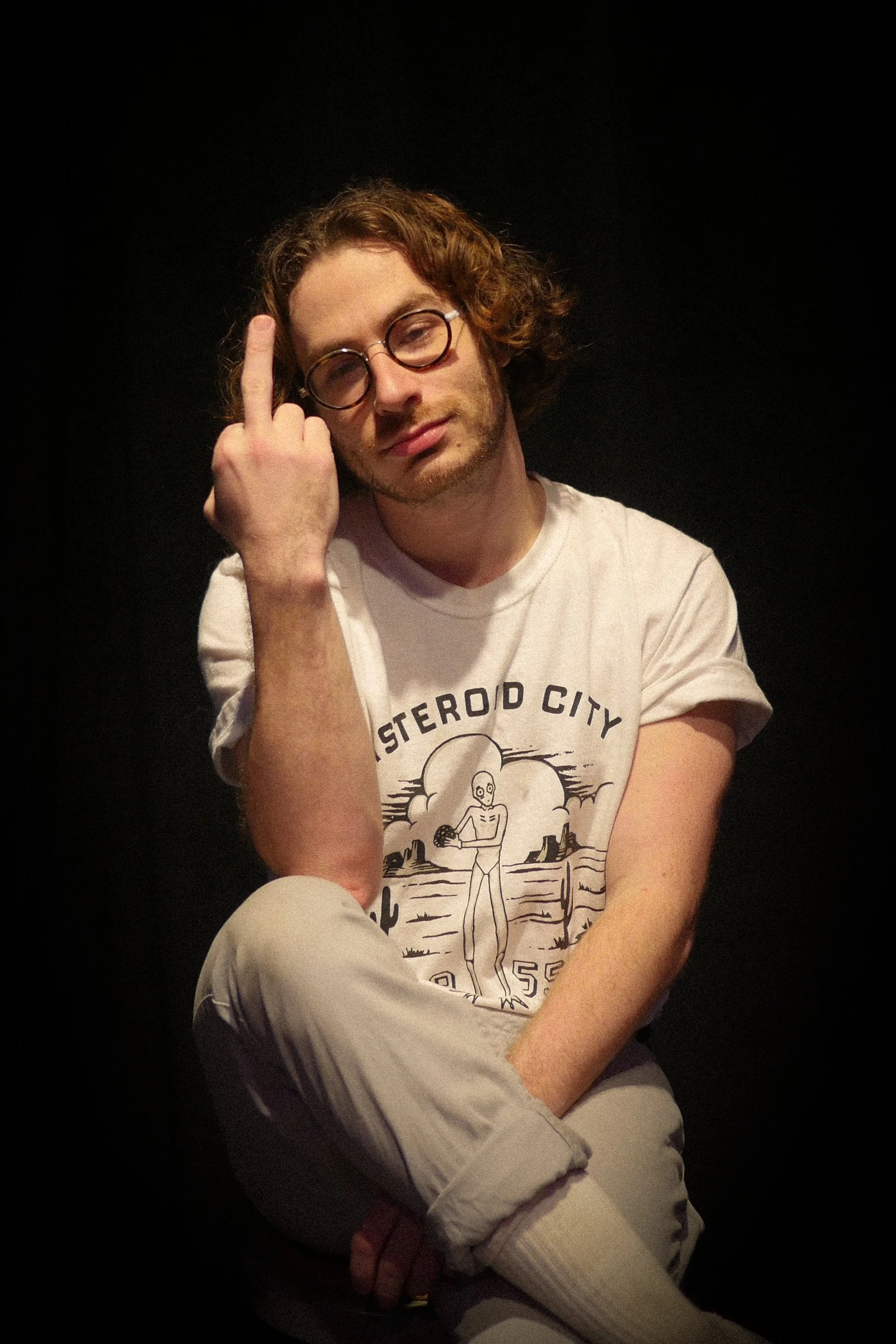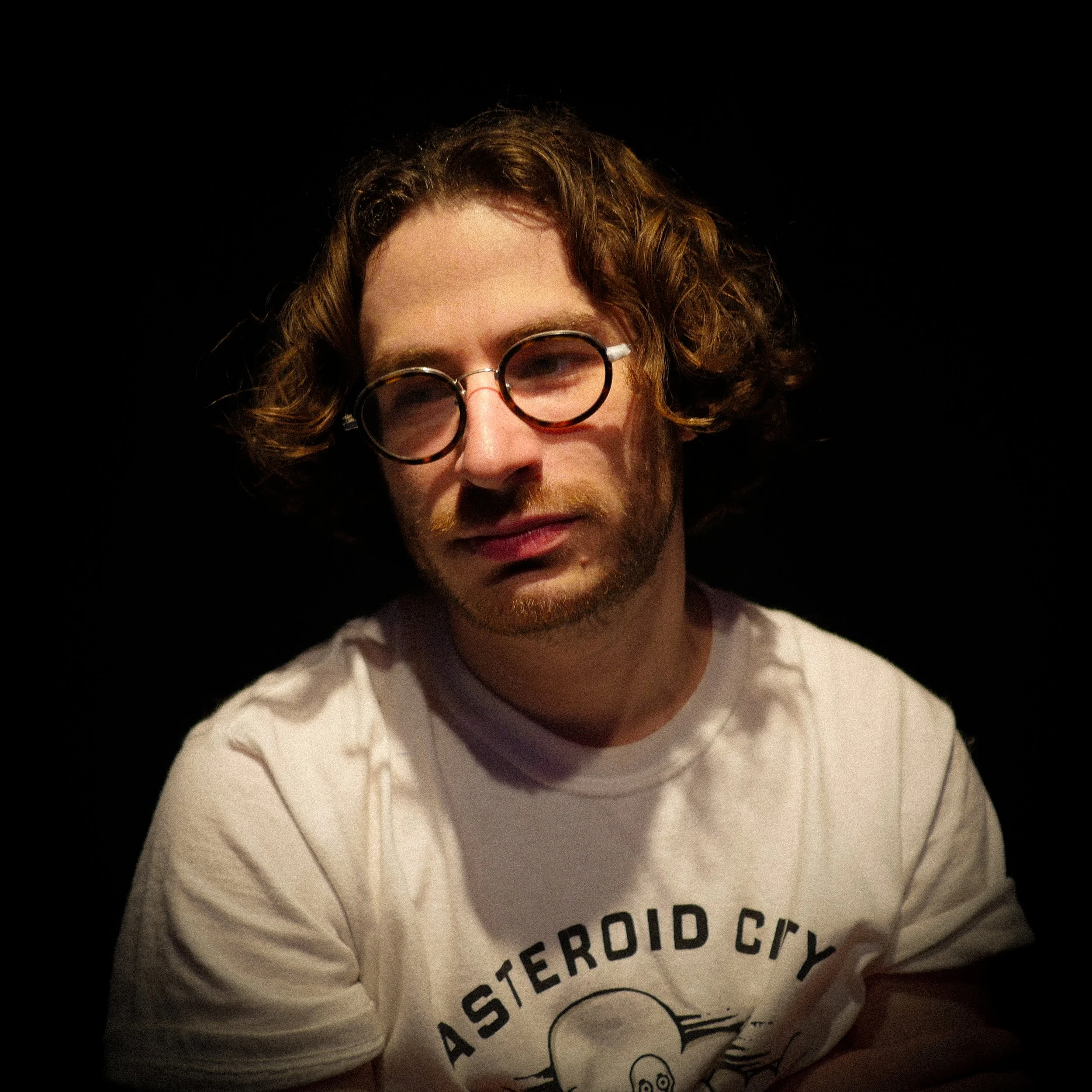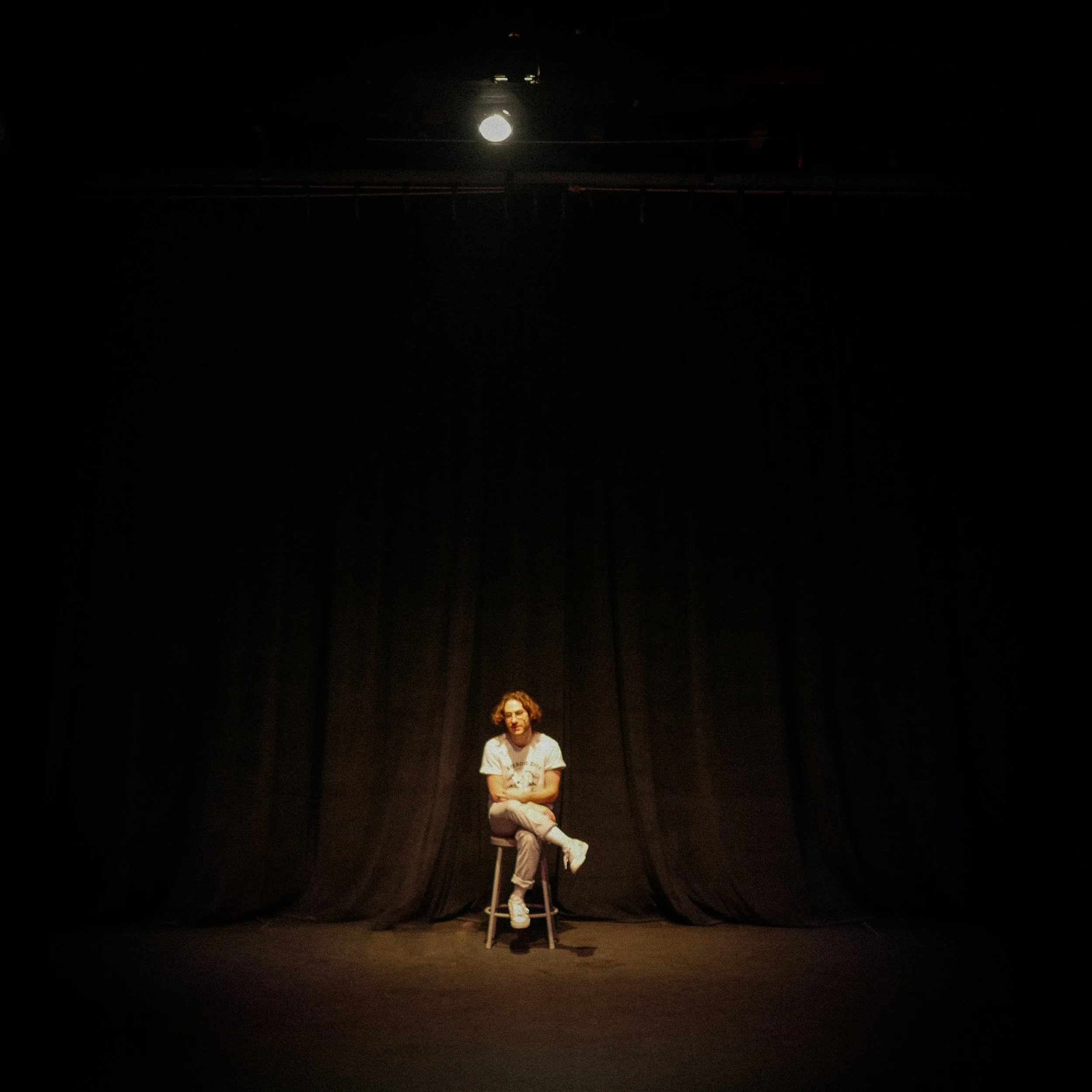Manny Liotta
by Omar Salas Zamora
March 18th, 2024
Manny Liotta is a filmmaker living in Los Angeles.
Omar Salas Zamora: How are you pitching yourself these days?
Manny Liotta: I tell people I'm a writer director. I mean, at this point in my life, I'm a DIY filmmaker, so I'm doing everything I'm trying to think of. I also direct music videos.
You’ve been squirrely about this in the past but if they had to be etched into your tombstone, what would be your Letterboxd top four?
8 ½ and The Last Picture Show... those would have to be there. There's no world where those two aren't etched into my grave for some reason. What else? I want to say Heat or Goodfellas? This is really hard. This is a horrible question. The hardest question of all time, especially with how many movies you and I watch. Blade Runner? The Virgin Suicides?
You change your top 4 quite a bit. I never do.
What are yours? The Shining? A Woman Under The Influence?
Woman Under The Influence, Nashville, Elephant and my fourth used to be The Last Picture Show but now it's Cruising.
Elephant stays? Jesus Christ. I can watch a lot of fucked up shit. School shooting stuff is always the thing that's bothered me the most.
I’m older than you and it was still a fascinating oddity when I was in high school. I think someone your age must have dealt with it in a more head-on way.
Definitely, especially coming from Ohio. It wasn’t out of the ordinary. There was a school shooting maybe 30 or 40 minutes from my school. School shooters are the scariest thing to me. You can make a movie about 9/11 and it’s less disturbing to me.
Because we’re taught to be afraid of terrorists. We’re not taught to be afraid of kids.
Exactly. Long story short, I think putting Elephant in your top four is fucking wild.
You’re specifically attracting Gen-Z with the kind of filmmaking content you’re doing. Do you feel like there are any obvious pros or cons from that generation regarding film culture?
There seems to be this new appreciation for film history and culture, but I’m not sure if they’re approaching it with as much open-mindedness regarding the cultural differences in film then versus now. The Gen-Z curiosity of wanting to understand film is there, but maybe the understanding of the cultural context isn’t. There’s some weird phase in the last decade that's just thrown it all off. Movies need to be seen and talked about, and I try my hardest to promote movies that I feel should be discovered, but the problem that I’m seeing is the lack of open minds. Everyone is entitled to their own opinions, and some people have very, very, very strict views, and maybe that’s what keeps film discussion alive. There are movies from the 20s, 30s, and 40s dealing with horrible, unforgivable history, and they're not being looked at within the context of film history. Having said that, I’m not a film reviewer; I’m a film enthusiast. I love 9 out of 10 films I watch. And as a filmmaker, I really am not in the spirit of trashing something or throwing a harsh opinion in someone’s way. It’s an art form that should be treated with an open mind, and I don’t think that’s there with younger people.
I’m fascinated by the A24 film worship that came with younger cinephiles.
These films that A24 is putting out have always been there, they just haven't had this level of respectability, marketability. There’s a new legitimacy.
Do you feel that there's any pros that you don't see with other generations?
Letterboxd. What Letterboxd is doing is bringing a new life and resurgence to film discovery. It’s giving everybody the opportunity to do that in a very accessible, fun, hip way that hasn't been around. Still, it’s up to the viewer to have the energy, the motivation to seek out these movies. But I'm seeing it. It’s happening. I'm seeing people from my hometown and from my home state that have no business watching some of the movies that they watch, only because I didn't know that they were interested. But Letterboxd gave them the tool to seek them out and to find it in discovery. Yeah, some of these reviews, criticism, and opinions are just atrocious, but it doesn't matter because the key is they're discovering movies, they're finding out about films and going through film history through the decades. I think that's why I'm such an advocate for them because it's just right now, it seems to be the alternative to what we had as video stores. It's a digital video store, except, and you gotta find movies on your own, and I know all the ways to find the movies that I need to find.
I was looking everywhere this morning for a movie and I couldn’t find it.
What was it?
The State of Things, from 1982 by Wim Wenders. It’s a filmmaking movie. [Manny pulls out his cellular phone while I explain the plot to him.] In the movie, they’re remaking a Roger Corman movie and the set is falling apart.
[Manny hands me his cellular phone, The State of Things is playing in HD.]
Where did you find this?
I’ll tell you the site, but you can’t tell anyone or it’ll get shut down. But dude, I've seen way too many movies on that site that, by the grace of God, I wouldn't have before
More than ever before, I’m interested in these underground hard to find movies. I’d rather sit down for this completely forgotten crazy 50’s Swedish movie than watch Gladiator or Casablanca, mostly because I know those will always be at my fingertips.
That's what I'm saying. And you got sites like RareFilmm.
Oh, I love RareFilmm. I use that a lot.
Like Guillermo del Toro said, we have to be the custodians of film history. With our Blu-ray collections, with DVDs, with VHS, is we have to be the ones that hold onto these things and supply them to people and we have to be the ones that are seeking and searching and finding and finding ways to either hold onto them or just let experience them and let that live on.
Being a filmmaker, do you feel that you're careful in any specific way when you're interviewing other filmmakers?
I'm not an audience member. I've never once wanted to be an audience member because an audience member is disconnected from the process. You and I, we’re not disconnected. So because of that, obviously our viewpoints and articulation when talking to filmmakers completely change. Now if I'm talking to Scorsese, that's different. I'll be a fan.
For me, I know that I’m really loving a movie when I’m not thinking about the process at all.
I've been really good at letting a movie just be itself and being swept up in it while admiring the technical aspects and the writing. I'm really good at juggling all three, just being taken away as a viewer. Speaking to Adam Rehmeier, who directed Snack Shack, I try to ask him about the connective tissue from his first film to Snack Shack and bringing in that technical prowess and technique between the two. Basically, I’m trying to get to the real juicy parts of filmmaking that you don't get when you’re at the fucking screenings - these guys that haven’t touched a camera in their lives and they haven’t been in the weeds like we have. The filmmakers definitely appreciate talking through the process and getting to gritty questions and to gritty answers rather than some bullshit very, very, very light question like, yeah, what are your inspirations or what was going in your head making this or just this? The bullshit I hear every time during every Q&A.
What movie do you feel like people need to talk about more?
Oh, my God, why would you do this? Yeah, that's a hard question for me. I'll say Sex, Lies, and Videotape because I think that's the movie that is literally always playing in my head 24/7, which I don't know if that's what that says about me, but what Sex, Lies, and Videotape does is very simply, it's just an amazing script with amazing execution that is so vulnerable. Obviously, we all know Sex, Lies, and Videotape as being this independent movie that changed the landscape of indie films. It's this weird hodgepodge of mood and aesthetic and tone and captures, and it's the same thing with Slacker. Those are the two movies.
Both have capital-c characters. Both Texas indies.
I think for where I'm at right now as a 26-year-old on the cusp of making his first feature film, these are films that I think people should cherish, utilize, understand, and digest and study as much as humanly possible, not just for research purposes too, in terms of what these movies are doing, but for the fact that these filmmakers, where they were at in their life and how they got there, how they decided to come up with this and their thought process behind making it, is as infectious and rich with, I think, just motivation to get up and make a movie.
Photography by Omar Salas Zamora
Interview by Omar Salas Zamora




